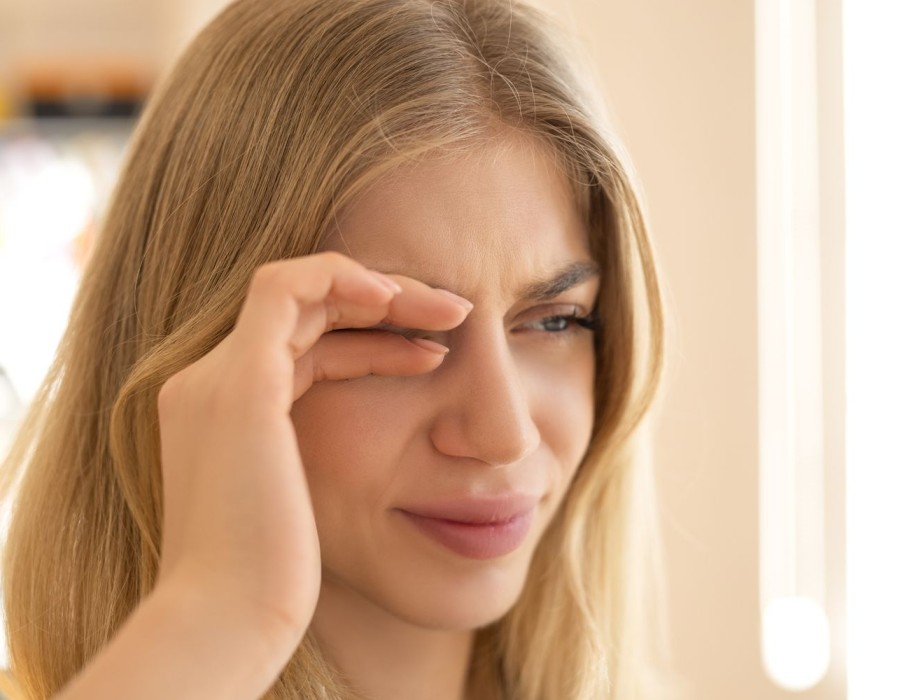Vision changes are often linked to aging, but many lesser-known factors can cause eyesight to worsen unexpectedly. If you’ve noticed blurry vision, frequent headaches, or difficulty focusing, it might not just be your age or genetics. Several lifestyle and health factors play a role in how well you see. Here are six surprising reasons your vision may be declining:
1. Excessive Screen Time
In today’s digital world, it’s nearly impossible to escape screens. Long hours in front of computers, phones, or tablets can strain the eyes and lead to a condition known as digital eye strain. Symptoms include dryness, blurred vision, and headaches. This strain occurs because people tend to blink less while focusing on screens, reducing eye lubrication. Over time, this can contribute to long-term vision changes. Following the 20-20-20 rule—every 20 minutes, look at something 20 feet away for at least 20 seconds—helps ease the burden on your eyes.
2. Poor Diet and Nutrient Deficiencies
What you eat directly affects your eye health. Diets lacking key nutrients such as vitamin A, vitamin C, zinc, and omega-3 fatty acids can make your vision more vulnerable to decline. For example, vitamin A deficiency can lead to night blindness, while insufficient omega-3s can cause dry eyes. On the other hand, a nutrient-rich diet that includes leafy greens, fish, carrots, and citrus fruits can protect against macular degeneration and other vision problems. Even mild deficiencies over time can slowly impact how well your eyes function. If you’re worried about changes in your vision, consider scheduling a consultation with experienced retina specialists in NYC.
3. Uncontrolled Health Conditions
Chronic illnesses like diabetes and high blood pressure don’t just affect your general health—they can also harm your eyes. Diabetes, for instance, may lead to diabetic retinopathy, a condition where high blood sugar damages blood vessels in the retina. Similarly, high blood pressure can strain delicate blood vessels in the eyes, leading to vision problems if left unmanaged. Even conditions such as thyroid disease or autoimmune disorders may have side effects that impact the eyes. Regular medical checkups and proper treatment of underlying conditions are essential for protecting your eyesight.
4. Lack of Quality Sleep
Sleep isn’t just about feeling rested—it plays a crucial role in eye health. Insufficient or poor-quality sleep can cause eye twitching, dryness, and blurred vision. Over time, chronic sleep deprivation may even contribute to more serious vision issues, as the eyes don’t get enough time to replenish and recover. During sleep, your eyes are lubricated and cleared of irritants such as dust and allergens. Without adequate rest, you may notice redness, strain, or difficulty focusing the next day, which can accumulate into long-term decline if the habit persists.
5. Overuse of Contact Lenses
Contact lenses offer convenience, but improper or prolonged use can harm your vision. Wearing them longer than recommended, not cleaning them properly, or even sleeping with lenses in can increase the risk of eye infections and corneal damage. Infections like keratitis can cause serious complications, sometimes leading to permanent vision loss if not treated promptly. It’s crucial to follow your optometrist’s guidance on wearing time, hygiene, and replacement schedules to avoid preventable eye health problems.
6. Environmental Factors You Don’t Notice
The environment around you can have a bigger impact on your vision than you might expect. Constant exposure to dry air from air conditioning or heating systems can leave your eyes irritated and dry. Pollution and allergens may cause inflammation and discomfort, while prolonged sun exposure without UV protection can increase the risk of cataracts and macular degeneration. Even spending less time outdoors has been linked to worsening vision, especially in children and young adults. Protecting your eyes with sunglasses, using humidifiers indoors, and managing allergens can go a long way in preventing vision decline.






Comments